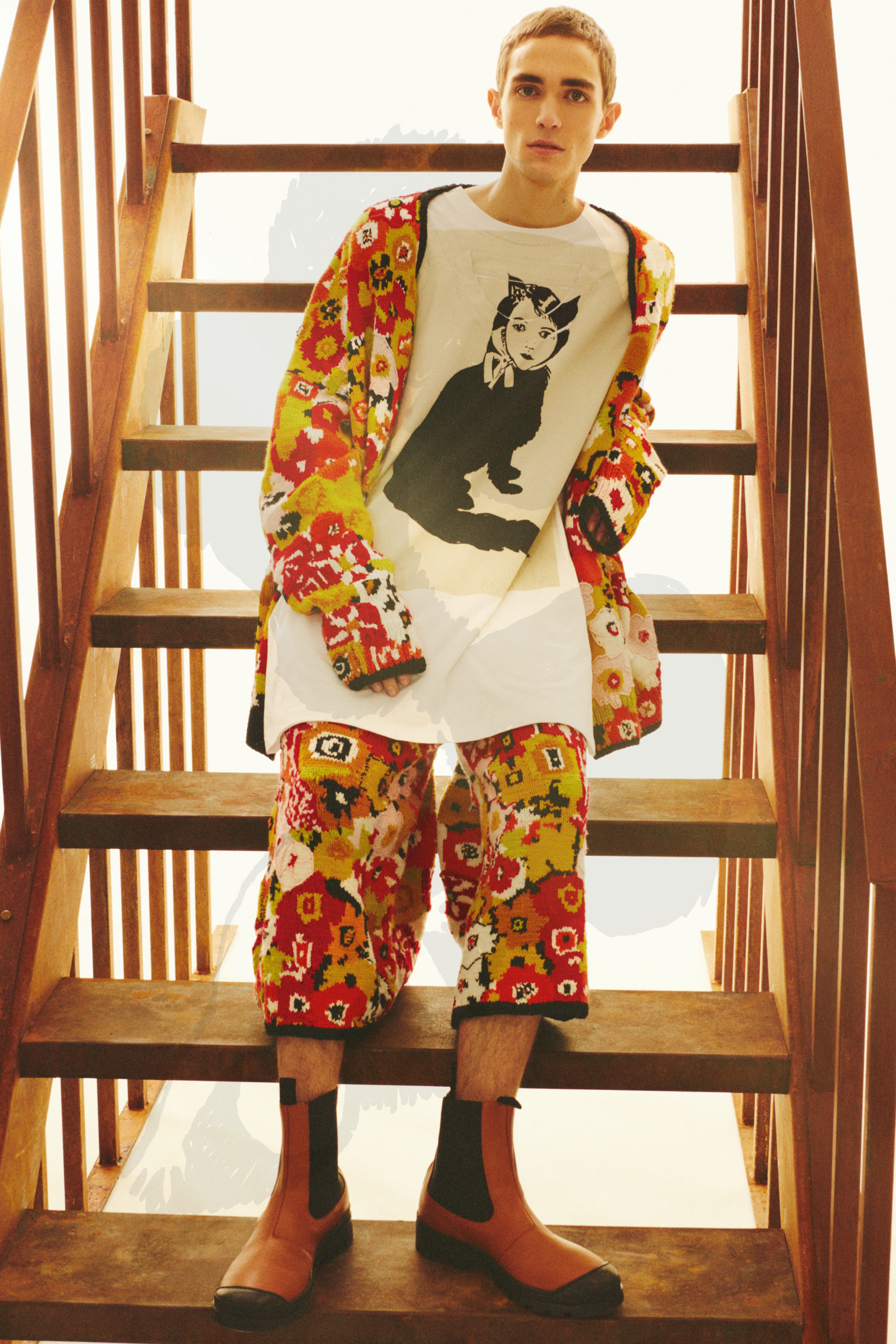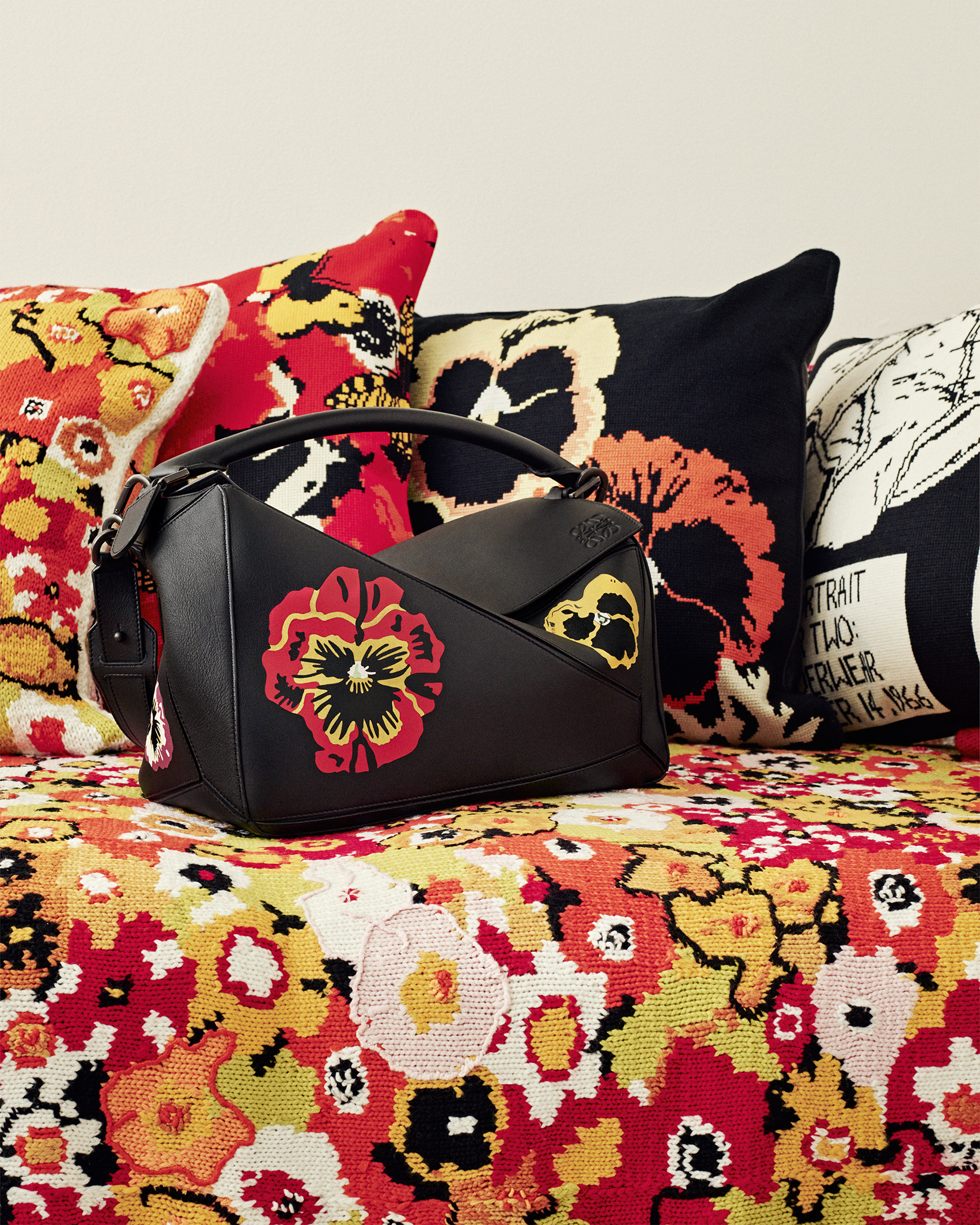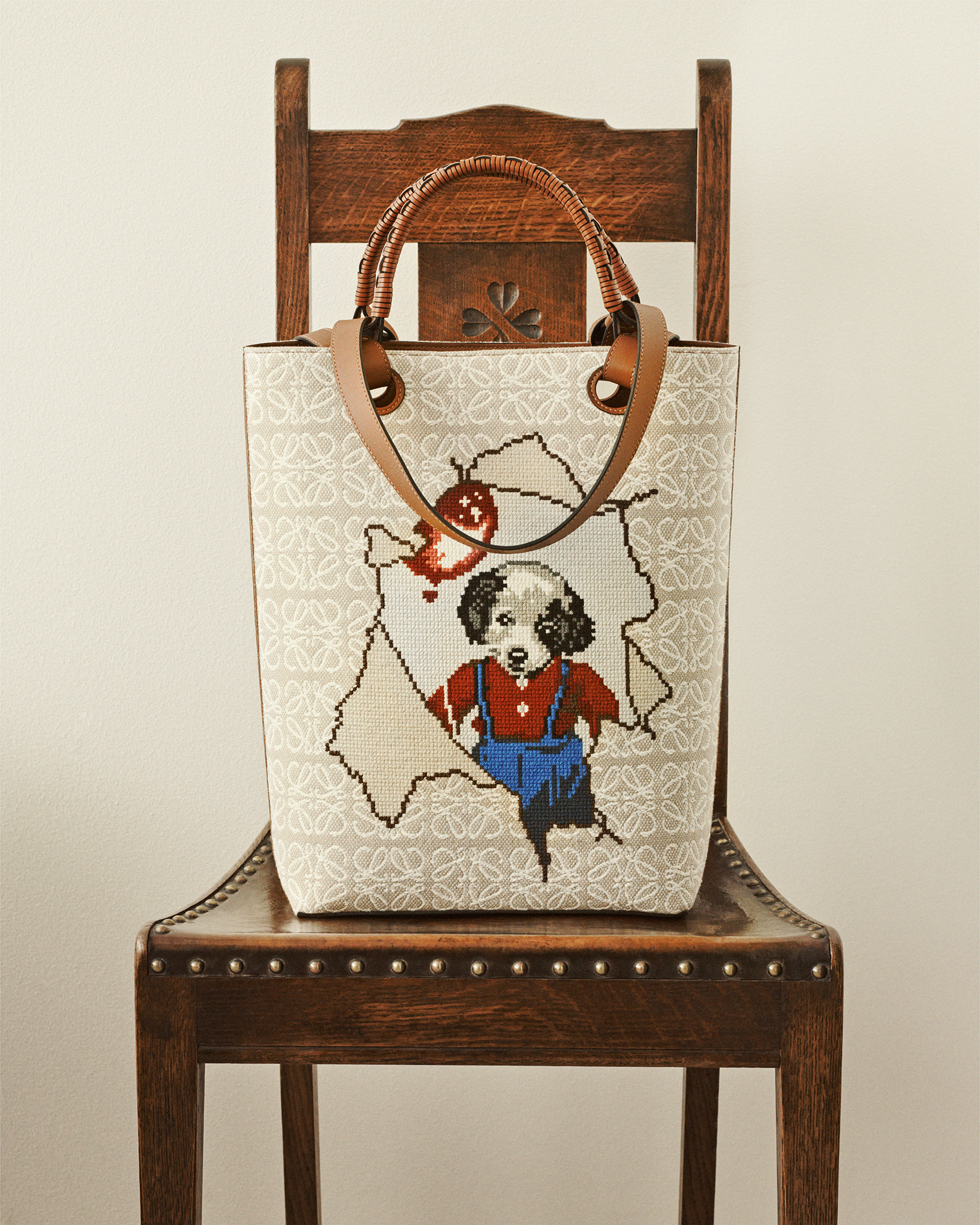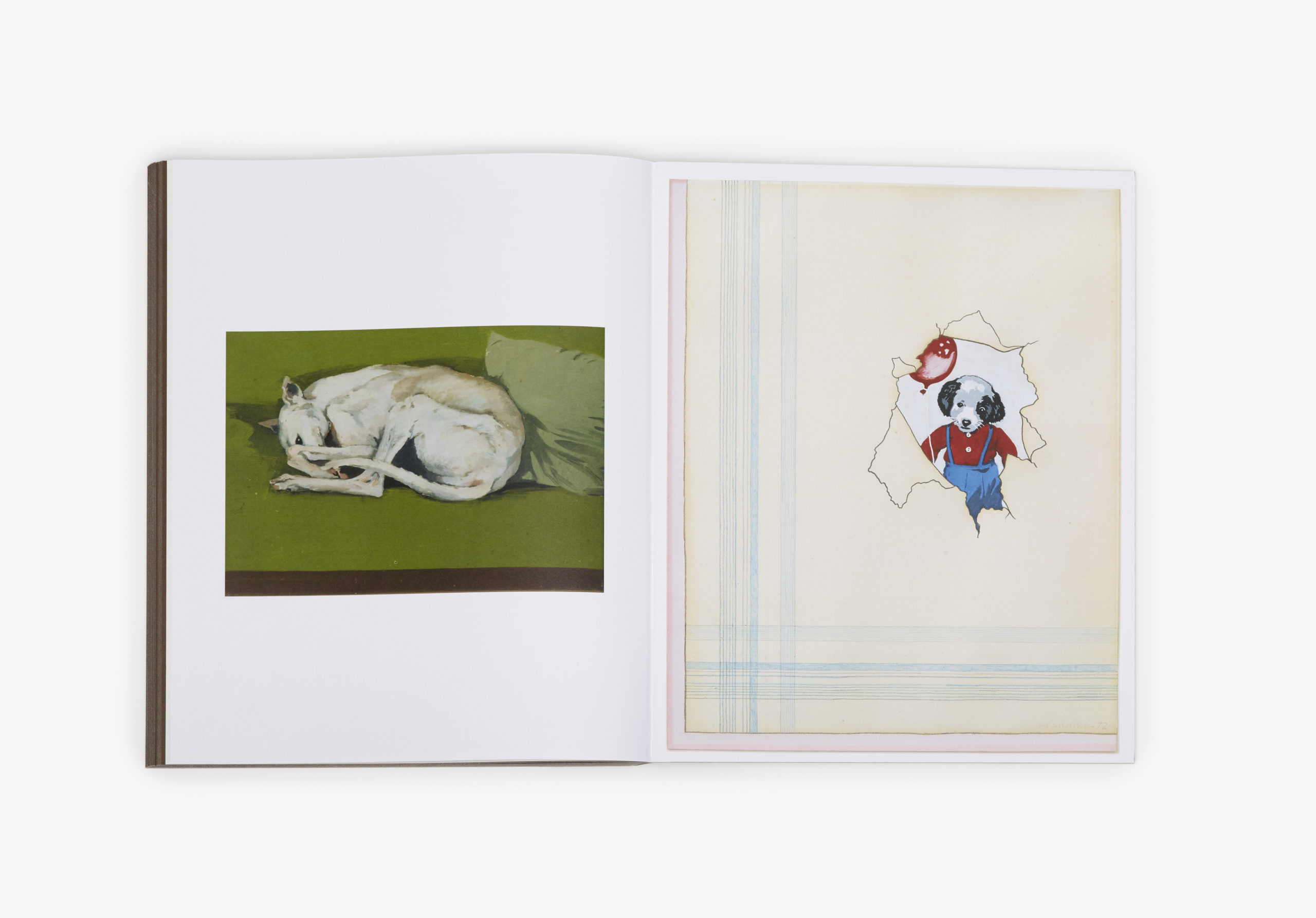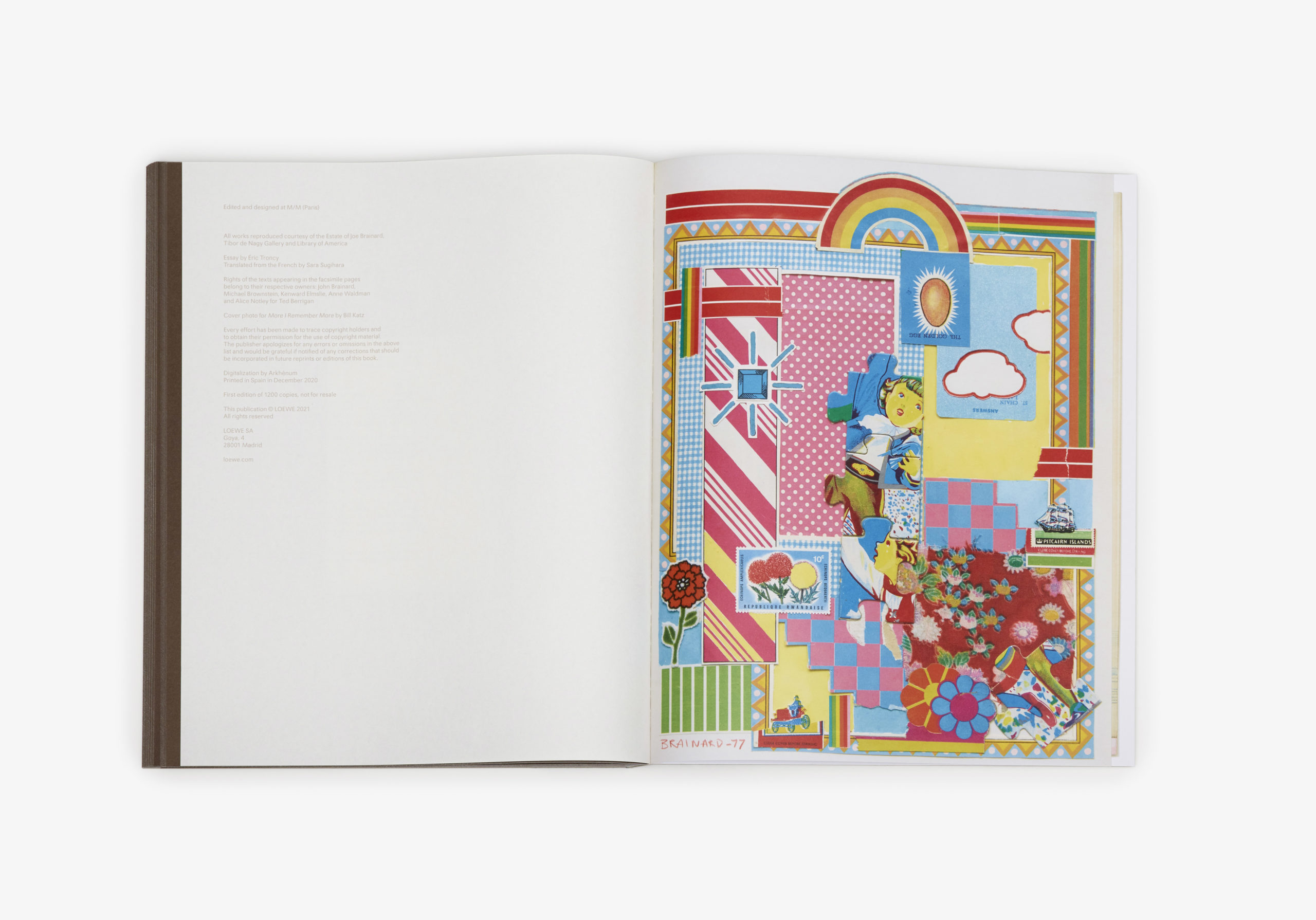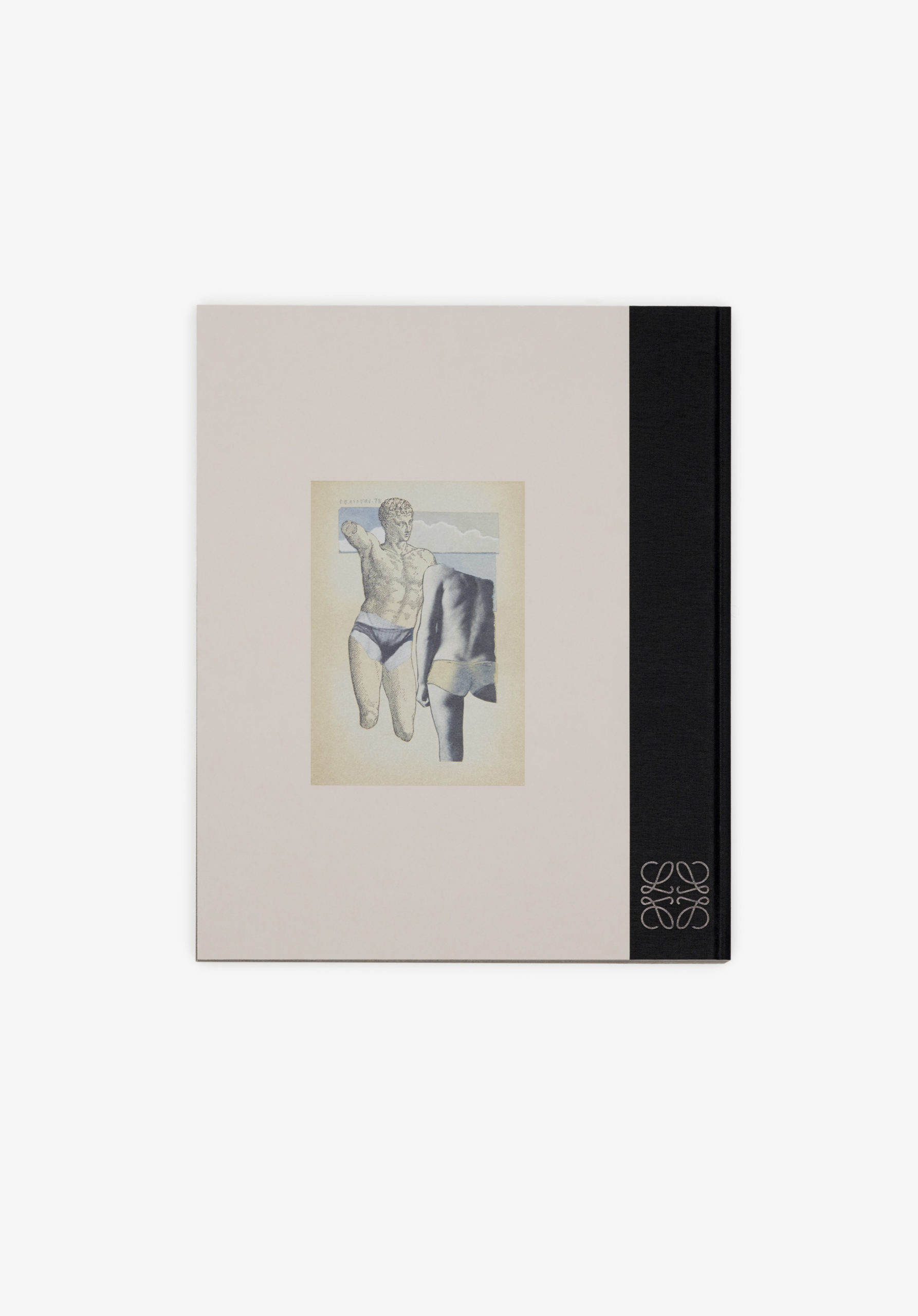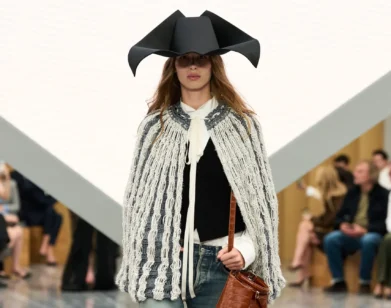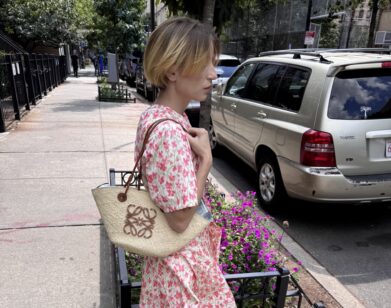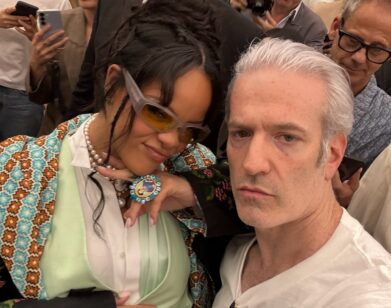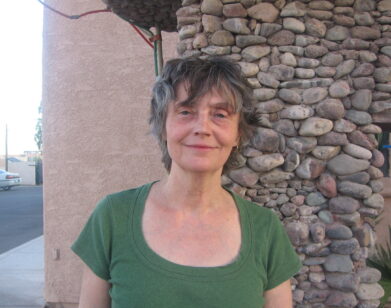fashion!
Loewe Unpacks the Warm, Sweet Memory of Artist Joe Brainard

Images courtesy of Loewe.
For John Brainard, one of the earliest recollections he has of his older brother, the late artist Joe Brainard, is an intimate moment they shared in an inflatable pool. John, then only four or five years old, remembers a sudden nosebleed coming on when, without hesitation, Joe reached over and mopped up the blood trickling down his face with his bare hands. “It was just a tiny but somehow touching and memorable thing that always stuck with me, and I can see it and feel it, and it’s a warm, sweet memory,” John reminisced in a conversation with the poet Ron Padgett in a three-part film series produced by the Spanish fashion house Loewe.
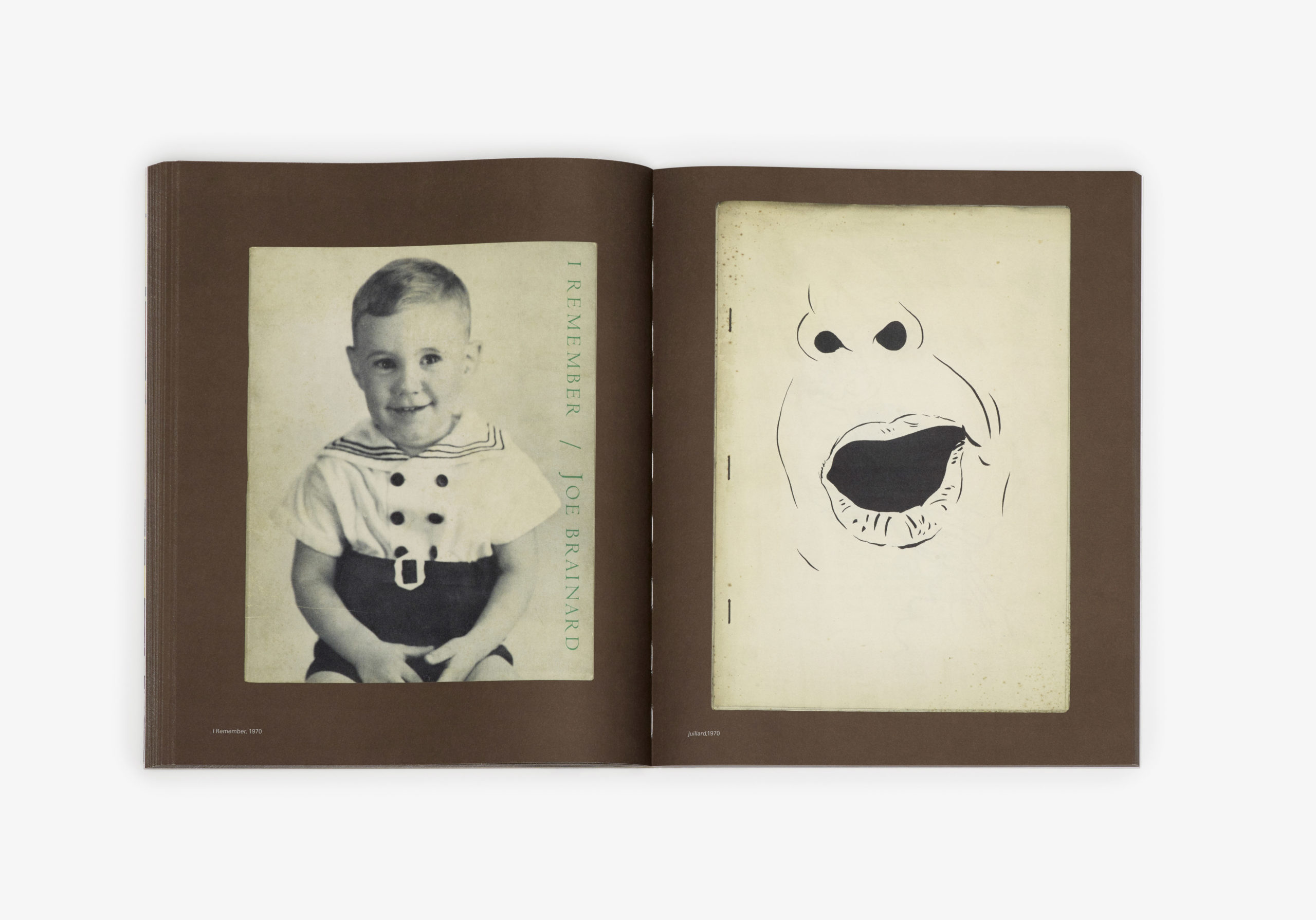
This sort of tenderness described by John is a touching, yet not entirely surprising, revelation about the artist. In the survey of works he devised during his lifespan, Brainard’s heart is strewn across his compositions. Charming depictions of puppy dogs, Walt Disney characters, and patches of wildflowers incite a kind of warm-and-fuzziness associated with opening a hand-crafted Valentine’s gift. Even Brainard’s interpretations of the 1930s cartoon Nancy, where he reimagines the 8-year-old caricature as foul-mouthed as a sailor, feel oddly sentimental. This sort of gaiety is likely what inspired Loewe’s Creative Director Jonathan Anderson to pay homage to the American artist in the brand’s runway and women’s pre-collection for Fall/Winter 2021.
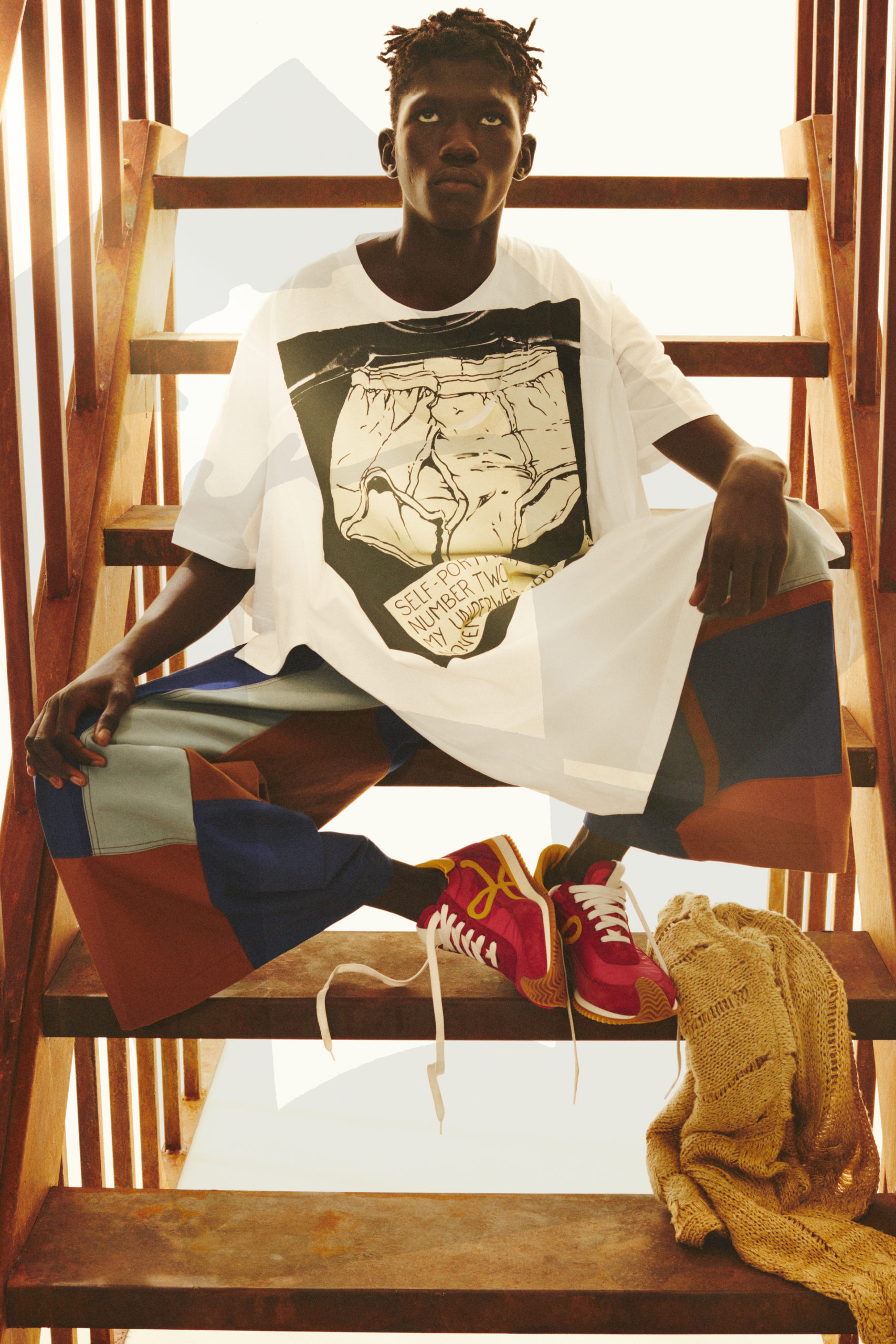
To debut the Brainard collection, Loewe partnered with design firm M/M Paris to conceive A Show in a Book, a 200-page volume featuring a sweeping compilation of the queer artist’s oeuvre. The monograph will be distributed at Printed Matter this June, with proceeds benefiting Visual AIDS. The charitable tribute is particularly poignant considering Brainard was reportedly at peace when he died from AIDS-related pneumonia in 1994, knowing that he lived and created to his very fullest capabilities. As his brother John put it in the film, “[Joe] went out so gracefully and courageously… that when he found he had AIDS and he was near the end of his life, and was just so brave about it, to me he said, ‘Well, I’ve really been lucky.’ He did what he wanted to do the way he wanted to do it. I think that gave him a kind of peace about passing. As horrible as it was to lose him… I’m thinking of Frank Sinatra singing: he did it his way.”
